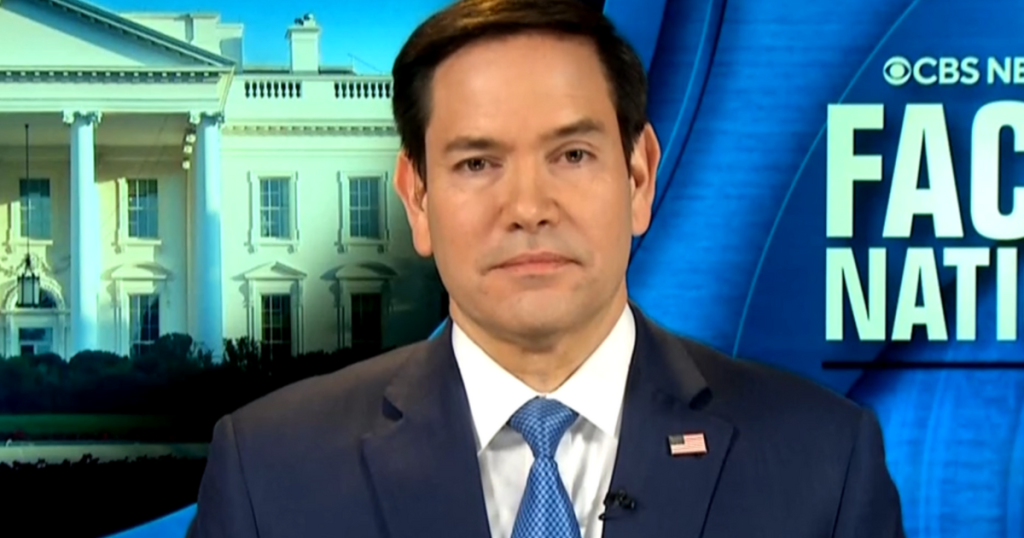In a significant development in U.S. immigration policy, Secretary of State Marco Rubio announced that Mahmoud Khalil, a Palestinian activist detained by immigration authorities, will be subject to visa and green card revocation. Khalil, a 30-year-old permanent resident and former negotiator during student protests, was arrested by Immigration and Customs Enforcement (ICE) on March 8, 2024, based on accusations of supporting Hamas. Rubio’s comments on national television have raised questions about the implications for free speech and the criteria used by authorities in determining support for extremist groups.
| Article Subheadings |
|---|
| 1) Overview of Mahmoud Khalil’s Detention |
| 2) Statements from Secretary Rubio |
| 3) Legal Implications of the Case |
| 4) Broader Context of Immigration Enforcement |
| 5) Reactions and Future Considerations |
Overview of Mahmoud Khalil’s Detention
Mahmoud Khalil was born in Syria to Palestinian parents and has resided in the United States as a permanent resident. His recent involvement as a negotiator during a student protest at Columbia University drew the attention of federal authorities. According to reports, he was arrested by ICE under a State Department directive aimed at revoking his existing visa. Following his arrest on March 8, 2024, Khalil was transferred to a federal detention facility in Louisiana. His attorney contends that the decision to detain him was based on a misunderstanding of his status, as he was a green card holder. Khalil’s case raises concerns over the criteria used to classify individuals as supporters of terrorism, particularly in the context of political expression and activism.
Statements from Secretary Rubio
In a television interview, Secretary Marco Rubio stated that the administration would continue to enforce visa and green card revocations for individuals identified as Hamas supporters. When questioned about evidence linking Khalil to terrorism, Rubio referenced news footage showcasing protests and confrontations at educational institutions. He emphasized a clear policy stance: individuals entering the U.S. must adhere to American foreign policy interests. “If you tell us when you apply for a visa that you’re coming to participate in pro-Hamas events, that runs counter to U.S. interests,” he stated. This position suggests a stricter interpretation of loyalty and intent for those who hold student or tourist visas.
Legal Implications of the Case
Khalil’s attorneys argue that his detention violates the First Amendment rights to free speech and assembly. They have filed motions to dismiss the charges, claiming that he is being penalized for exercising his right to protest. The case presents significant legal questions regarding the balance between national security and constitutional rights. A senior ICE official indicated that Khalil was deemed removable based on concerns that his activities could lead to adverse foreign policy consequences for the U.S. This raises important discussions around due process and the evidence required to substantiate such claims.
Broader Context of Immigration Enforcement
The case of Mahmoud Khalil is part of a broader trend in U.S. immigration enforcement that has garnered attention in recent months. The administration has reportedly been increasing the number of visa revocations, especially for individuals linked to controversial political movements. Rubio’s statements suggest that this scrutiny will extend beyond pro-Palestinian activists to include various groups perceived as threats to national security. This expansive approach raises concerns about the implications for immigrant communities and activists who may face increased risk of detention and deportation based merely on their political affiliations.
Reactions and Future Considerations
The reaction to Khalil’s detention has been polarizing, with advocates for civil liberties expressing alarm at the implications for free speech and association. Critics argue that the government’s actions could discourage future activism and dissent among students and marginalized communities. Moreover, as the legal battles unfold, there are questions about how this case might influence future policies on immigration and the treatment of activists. Legal experts and civil rights organizations are closely monitoring the situation, as it could set precedents affecting free speech and immigration rights moving forward.
| No. | Key Points |
|---|---|
| 1 | Mahmoud Khalil, a Palestinian activist, was arrested and detained by ICE under allegations of supporting Hamas. |
| 2 | Secretary Rubio affirmed the government’s stance on revoking visas and green cards for individuals linked to terrorism. |
| 3 | Khalil’s attorneys are challenging his detention as a violation of free speech rights guaranteed by the First Amendment. |
| 4 | The case raises significant questions regarding the legal limits of immigration enforcement and national security measures. |
| 5 | Reactions have been mixed, highlighting growing concerns about civil liberties in the context of immigration policy. |
Summary
The detention of Mahmoud Khalil underscores the increasing intersection of immigration enforcement and national security in the United States. As Secretary Marco Rubio’s statements indicate a firm policy against perceived threats, the implications for free speech, civil rights, and the activism landscape are profound and require careful examination. As legal proceedings continue, the case may have lasting impacts on how the U.S. government engages with activists and handles cases involving individuals whose political views may be at odds with national interests.
Frequently Asked Questions
Question: What was the reason for Mahmoud Khalil’s detention?
Mahmoud Khalil was detained by ICE under allegations of having links to Hamas, following his activities in protests at Columbia University.
Question: What are the legal claims being made by Khalil’s attorneys?
Khalil’s attorneys argue that his detention violates the First Amendment and the Due Process Clause, as he is being punished for exercising his right to protest.
Question: How has the U.S. government justified the revocation of visas and green cards in this context?
The government, as articulated by Secretary Rubio, justifies such revocations by asserting that individuals linked to groups like Hamas undermine U.S. foreign policy and pose potential national security risks.


